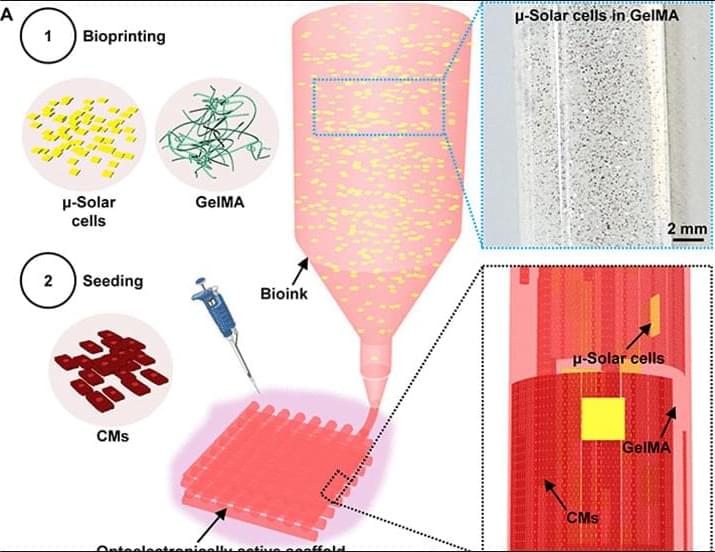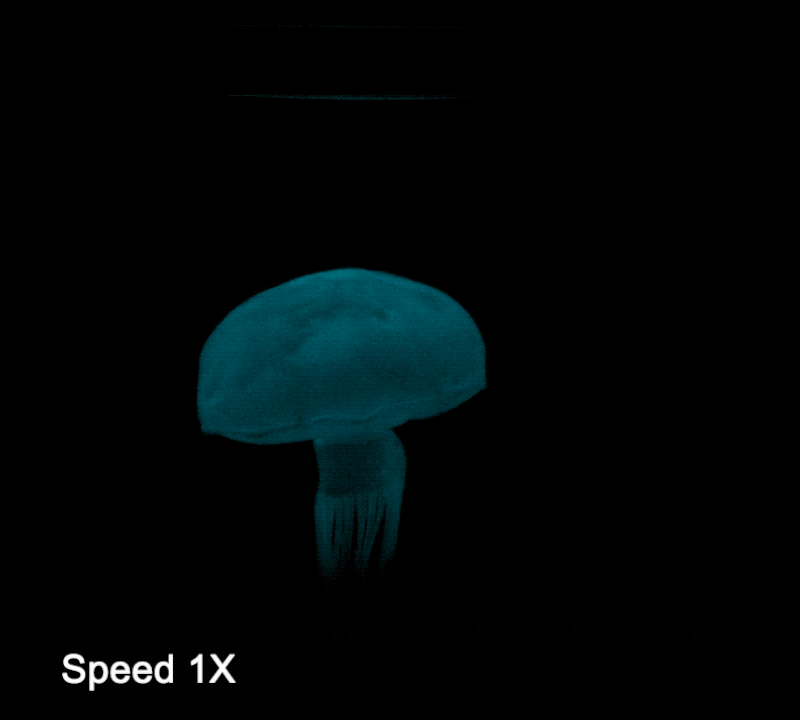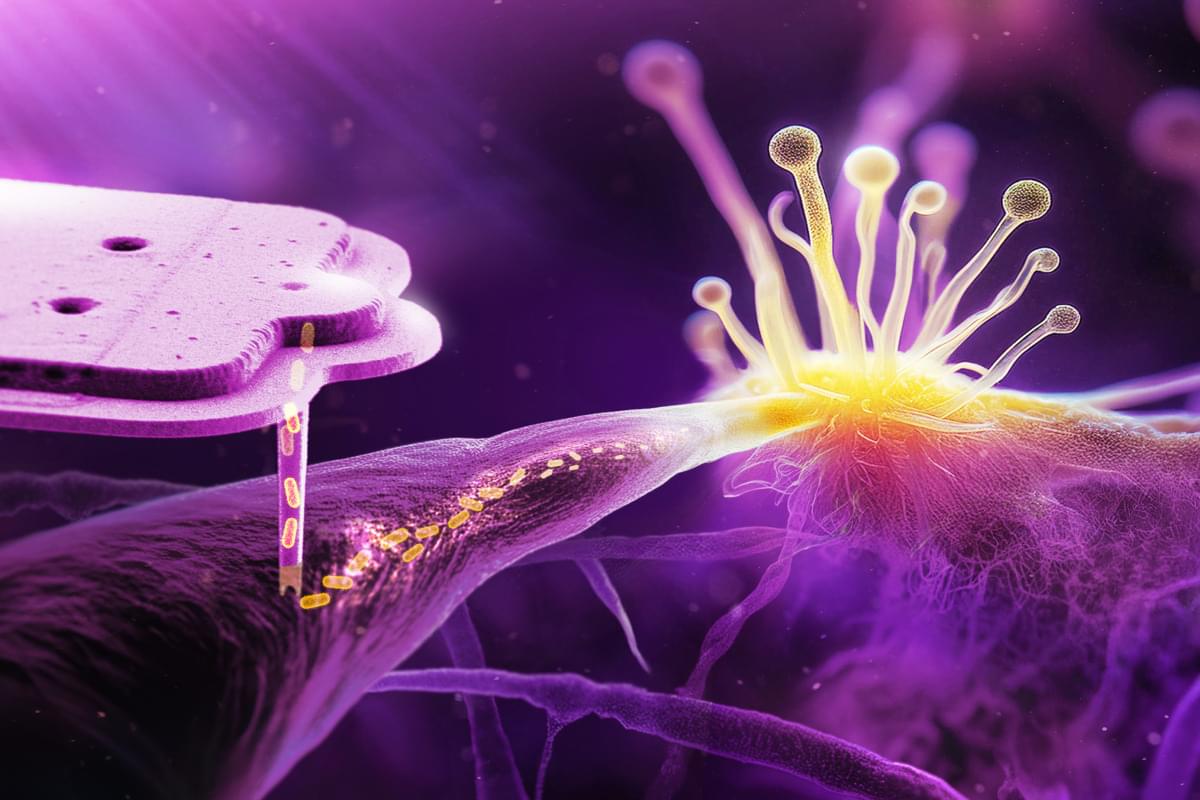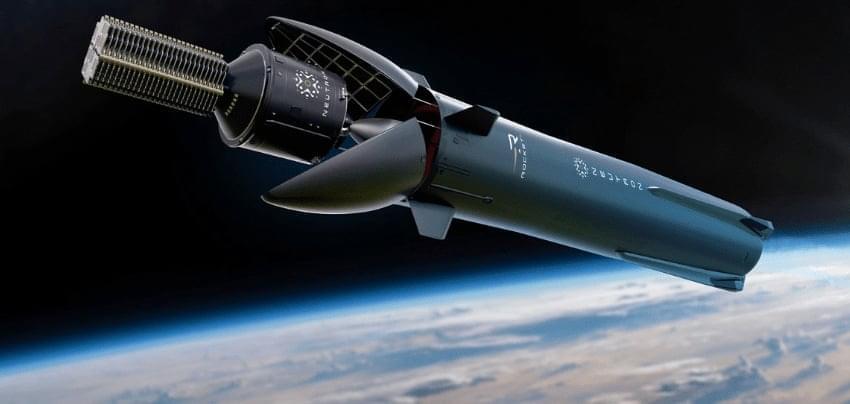Electrical stimulation of existing three-dimensional bioprinted tissues to alter tissue activities is typically associated with wired delivery, invasive electrode placement, and potential cell damage, minimizing its efficacy in cardiac modulation. Here, we report an optoelectronically active scaffold based on printed gelatin methacryloyl embedded with micro-solar cells, seeded with cardiomyocytes to form light-stimulable tissues. This enables untethered, noninvasive, and damage-free optoelectronic stimulation–induced modulation of cardiac beating behaviors without needing wires or genetic modifications to the tissue solely with light. Pulsed light stimulation of human cardiomyocytes showed that the optoelectronically active scaffold could increase their beating rates (>40%), maintain high cell viability under light stimulation (>96%), and negligibly affect the electrocardiogram morphology. The seeded scaffolds, termed optoelectronically active tissues, were able to successfully accelerate heart beating in vivo in rats. Our work demonstrates a viable wireless, printable, and optically controllable tissue, suggesting a transformative step in future therapy of electrically active tissues/organs.








